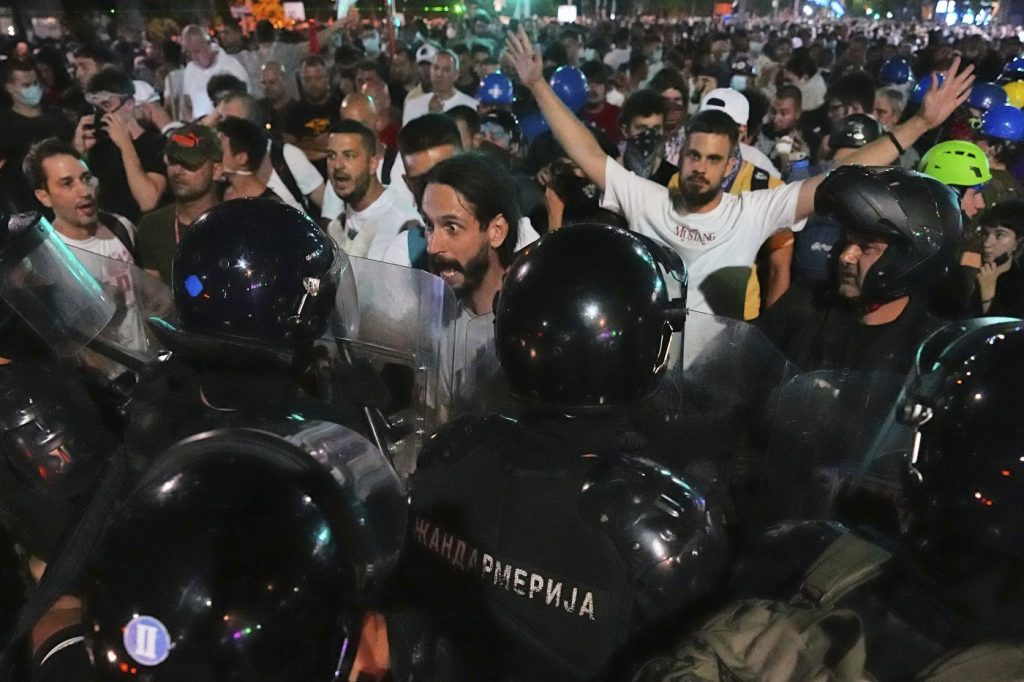BELGRADE, Serbia (AP) — Serbian police dismantled street blockades that had been set up in the capital, Belgrade, early Monday as part of ongoing protests against the government. The demonstrations were triggered by a series of arrests of anti-government protesters following a significant rally advocating for early parliamentary elections.
On Sunday evening, thousands of demonstrators constructed metal barriers and garbage containers at multiple locations across Belgrade and in other parts of the country, including a crucial bridge over the Sava River. While police did not disclose specific numbers, they indicated that several protestors had been detained. Videos shared on social media depicted police vehicles speeding through blockades, causing panic among the crowd.
These blockades stem from persistent public dissent against the government led by populist President Aleksandar Vucic, which has escalated since a tragic incident on November 1. In this event, a train station canopy collapsed in Novi Sad, resulting in the deaths of 16 individuals. Many citizens attribute this disaster to negligence linked to corruption in state infrastructure projects, fueling growing frustration and calls for accountability.
On Saturday, tens of thousands rallied in Belgrade for a student-led protest, demanding a snap election as a means to potentially remove Vucic and his right-wing government from power. This gathering ended with clashes between protesters and police, which led to numerous detentions. In total, nearly 50 officers and 22 protesters sustained injuries during the violent confrontations, with riot police resorting to batons, pepper spray, and shields against demonstrators who retaliated by throwing rocks and other objects.
Despite the rising tensions, President Vucic has refused to call for elections, which are scheduled to take place in 2027. His administration has seen continuous protests, primarily led by university students and professors, who have participated in almost daily demonstrations for the past eight months. Vucic has criticized this group, describing their actions as "terror" that aims to destabilize the nation.
In the wake of the protests, Serbian authorities have apprehended at least eight university students, accusing them of participating in activities detrimental to constitutional order and security and allegedly planning attacks on state institutions. Protesters are demanding their immediate release, viewing these arrests as politically motivated repression. Critics assert that Vucic has increasingly adopted authoritarian measures since ascending to power over a decade ago, curbing democratic freedoms while allowing corruption and organized crime to fester—a claim he refutes.
While Serbia formally seeks to join the European Union, Vucic's government has simultaneously fostered closer relations with Russia and China, leading to skepticism about the country's commitment to European integration.










